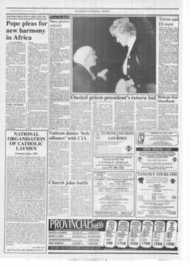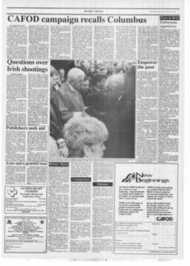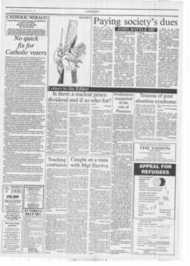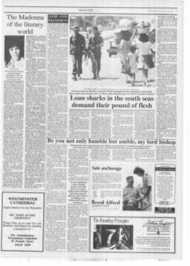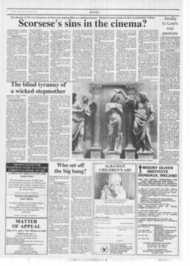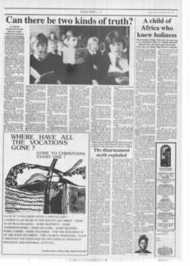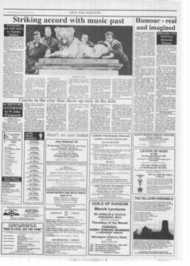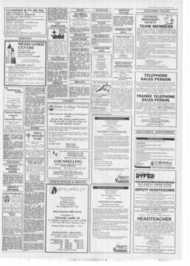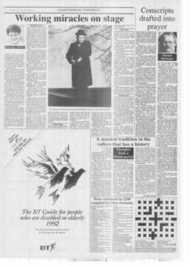Page 10, 28th February 1992
Page 10
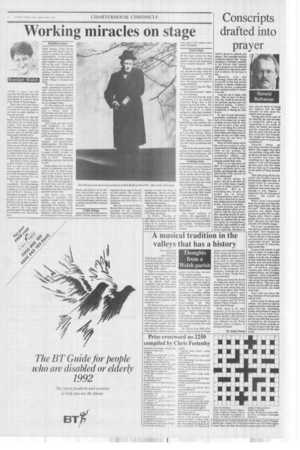
Report an error
Noticed an error on this page?If you've noticed an error in this article please click here to report it.
Tags
Share
Related articles
Religious Revival Goes Sour
Forget Columbus, What About The Prince Of Wales?
For The Feast Of St. David, Father Of Wales
Memory Loss On The Costa Bureaucratica
Wales Is Different In Its Morality
A musical tradition in the valleys that has a history
Thoughts from a Welsh parish
Coronation Street Aberkenfig Mid Glamorgan THIS Sunday March 1 is the feast of St David, patron of Wales. A common cliche about Wales is the "Land of Song". How much truth does this cliche contain?
There is no evidence that in the distant centuries Wales was more musical than other countries. The Welsh way of life in the Middle Ages was completely rural and thus music was centred on the monasteries and manor houses.
Among the instruments, pride of place was given to the harp. And Welsh harpists were admired and employed in England, many of them at court.
The Reformation had a most harmful effect on Welsh music. The dissolution of the monasteries extinguished almost completely the practice of liturgical music in Wales and also stilled the means of providing future generations with a musical training. That the only surviving British organ mass was written by a Welsh composer, Philip ap Rhys, indicates the close contact, at this time, between Wales and the continent.
The Methodist revival had a contradictory influence upon Welsh music. From its origin in 1730 to about 1850 it was hostile to culture and tried to wean the Welsh away from their dependence on harping, fiddling and dancing, and create in their place a Methodist form of popular music. They did not invent hymn-singing, but they discovered that the best way to attack the emotions of the illiterate masses was through songs. The evangelised congregations sang their hymns with passion and fervour and sometimes gathered together to sing non-stop for three days and three nights.
The period from 1860-1914 forms a distinct period of Welsh chapel and eisteddfod music. Wales became the land of great choirs, and the seal was set on this by the famous victories of the great choir of the conductor Caradog at the Crystal Palace Music Festival in 1872 and 1873. Most of the composers were amateurs, although the most prolific of them, Joseph Parry, was professional.
During our century the decline of village and chapel society is reflected by the fact that Welsh music has been drawn back into the European sphere. Here Welsh music made its mark in opera with particular brilliance. There is a long list of outstanding Welsh opera singers and the Welsh National Opera Company is one of the finest in Europe.
Sadly opera is the most expensive of all the arts and because the Royal Opera House at Covent Garden is the favourite child of the Arts Council, it is very difficult for the Welsh National Opera Company to develop and expand.
Fr John Owen
blog comments powered by Disqus



